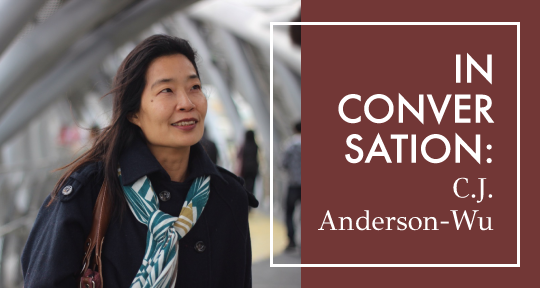Chieh-Jane Anderson-Wu (吳介禎) is a Taiwanese author, translator, and publisher of Taiwanese literature in translation. She is partly inspired by the white spots of Taiwan’s recent history, namely the White Terror, a forty-year period of martial law which began in 1949 and witnessed systematic repression within the nation, particularly targeting intellectuals. Pervasive censorship during the White Terror affected literature, but also the lives of many families at a time when secrecy and denial turned into a survival strategy for many. Anderson-Wu has written several works, including the story collection Impossible to Swallow and “Life Looked at From A Single Window,” and is currently working on a new novel.
Filip Noubel (FN): Today Taiwan is one of the freest societies in Asia, yet martial law only ended in 1987, almost forty years after it was first imposed. This period, known as the White Terror, witnessed tremendous political violence: over one hundred and fifty thousand people, including many intellectuals, were arrested, and several thousands were executed. It is also the theme of your collection of short stories called Impossible to Swallow. What has led you to find inspiration in this particular period of Taiwan’s history?
C.J. Anderson-Wu (C.J. A-W): There are several causes, but one of them is my sense of guilt. I did not understand it until I had written several stories. After the Formorsa Incident in 1979, posters of the so-called rebels were everywhere. I was a kid and really believed that they were bad people, that they should be arrested and put in jail. Years went by and as more historical materials were released after the abolishment of martial law, I gradually realized what lies we had lived in. I feel so grateful to those who never backed down and sacrificed so much for the freedom we are enjoying today, and resent my gullibility.
Another thing is that we never had transitional justice. We never had a Nuremberg Trial-type that conducted thorough investigation on what had really happened, why it happened, and who should be responsible. Thus we don’t know how we can prevent it from happening again. Today the past dictators are still worshipped, the days under authoritarian rules are still commemorated, and lies are still believed. I was shocked, in despair, and infuriated. How can people stay ignorant when all the evidence is presented in front of their eyes? How can people feel okay sacrificing the rights that were earned by blood, tears, and sweat?



